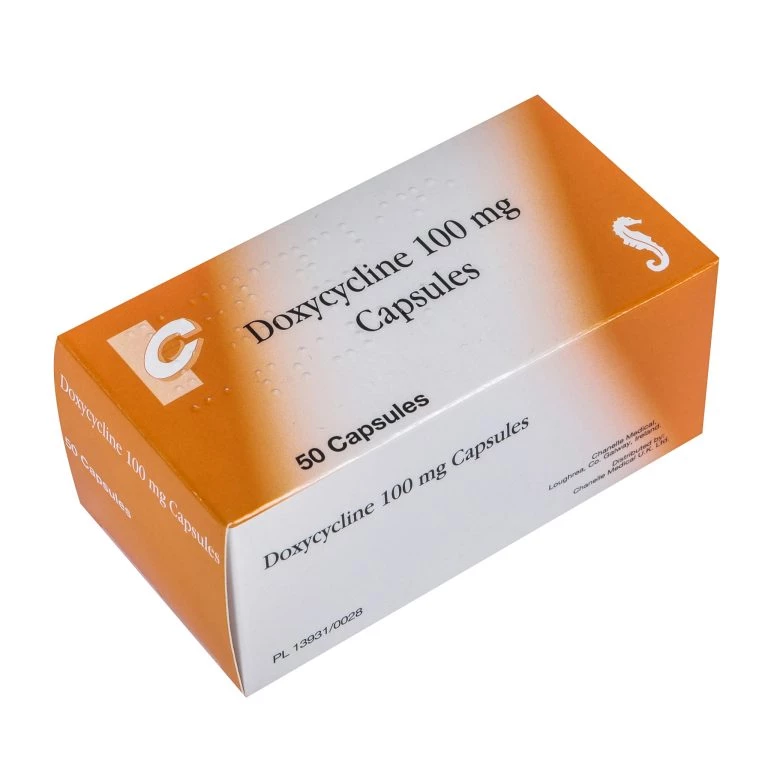What is Doxycycline?
Doxycycline is broad-spectrum tetracycline antibiotic and is licensed for malaria prevention in areas where there is widespread resistance to Mefloquine or Chloroquine or it can be used as an alternative to Mefloquine or Malarone.
To establish whether doxycycline is the most appropriate antimalarial for your travel, you should seek correct advice from your local GP, pharmacist or travel nurse or use reliable websites such as fitfortravel website or alternatively contact us for further information.
How do I take Doxycycline Capsules?
Doxycycline should be taken once a day, starting 1-2 days before entering an endemic area and continued for four weeks after leaving. You should complete the course, unless told otherwise and should try to take it at the same time each day. It should be swallowed whole with a full glass of water during meals while sitting or standing and should not be taken before going to bed. It should not be taken at the same time as antacids and aluminum, calcium, iron, magnesium and zinc salts as they may decrease the absorption of Doxycycline.
What are the cautions associated with taking Doxycycline?
Although Doxycycline is a long-established medication is should not be used by everyone. Doxycycline should be used with caution or avoided in patients with certain conditions including:
- Asplenia
- Acute porphyria
- Myasthenia gravis
- Systemic lupus erythematous
- Kidney or Liver Problems
- Rare hereditary problem of fructose intolerance, glucose, galactose malabsorption or sucrose-isomaltase insufficiency or sucrose-isomaltase insufficiency
- If you have an allergy to any Tetracycline, including Doxycycline or any of its constituents
- You are pregnant or breast-feeding
What are the side effects of Doxycycline?
As with all medications, there is a risk of side effects although not everyone will experience them. Some side effects associated with the use of Doxycycline include:
- Diarrhea, which should be reported if severe or prolonged
- Visual disturbances such as blurring of vision, which if it does occur please avoid driving or operating machinery
- Oesophageal and gastrointestinal reactions including: sore mouth, indigestion, and difficulty swallowing
- Nausea or vomiting
- Loss of appetite
- Tinnitus (ringing or buzzing noise in the ear)
- Muscle and joint pain
If you would like further information regarding potential side effects please read the patient information leaflet for Doxycycline.
Does Doxycycline give 100% protection against Malaria?
As with all malaria prophylaxis medication, protection is not absolute so it is always essential to take prophylaxis regularly, avoid mosquito bites and immediately visit your doctor if you become ill within one year and especially within 3 months of return.
Does Doxycycline make me more vunerable to damage for sunlight?
Doxycycline may increase the risk of developing skins reactions due to the sunlight. This is known as photo sensitivity. You should protect your skin from sunlight even on a bright but cloudy day and not use sunbeds and avoid excessive exposure to sunlight or sunlamps to reduce the risk of photosensitive reactions.











